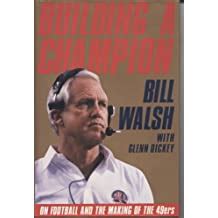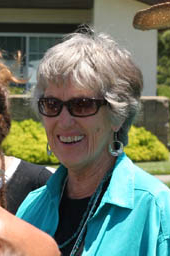A Quote by Aesop
Others may try to feed our ego, but it is up to us to constrain it.
Related Quotes
The most influential books, and the truest in their influence, are works of fiction. They repeat, they re-arrange, they clarify the lessons of life; they disengage us from ourselves, they constrain us to the acquaintance of others; and they show us the web of experience, but with a singular change-that monstrous, consuming ego of ours being, nonce, struck out.
Others may doubt us. They may criticize us. They may try to deny us what is rightfully ours. But they will fail. And I promise you, as long as I am mayor, I will never back away from fighting any opponent - or confronting any obstacle - that would prevent our people from achieving all of their dreams in Our New York.
Our sense of identity is in large measure conferred on us by others in the ways they treat or mistreat us, recognize or ignore us, praise us or punish us. Some people make us timid and shy; others elicit our sex appeal and dominance. In some groups we are made leaders, while in others we are reduced to being followers. We come to live up to or down to the expectations others have of us.
Novelty may fix our attention not even on the service but on the celebrant. You know what I mean. Try as one may to exclude it, the question "What on earth is he up to now?" will intrude. It lays one's devotion waste. There is really some excuse for the man who said, "I wish they'd remember that the charge to Peter was Feed my sheep; not Try experiments on my rats, or even, Teach my performing dogs new tricks.
There are two kinds of witnesses. One kind is the people that surround you. You are constantly aware that you are being watched, witnessed. With so many eyes watching you, you are reduced to an object... And you are afraid because they may not appreciate you. They may not feed your ego, they may not like you, they may reject you. Now you are in their hands.
...We leave our homeland, our property and our friends. We give up the familiar ground that supports our ego, admit the helplessness of ego to control its world and secure itself. We give up our clingings to superiority and self-preservation...It means giving up searching for a home, becoming a refugee, a lonely person who must depend on himself...Fundamentally, no one can help us. If we seek to relieve our loneliness, we will be distracted from the path. Instead, we must make a relationship with loneliness until it becomes aloneness.
To conclude this discussion, assessment of justice demands engagement with the 'eyes of mankind',first, because we may variously identify with the others elsewhere and not just with our local community;second, because our choices and actions may affect the lives of others far as well as near;and third,because what they see from their respective perspective of history and geography may help us to overcome our own parochialism.
There is another side [to ego] that can wreck a team or an organization. That is being distracted by your own importance. It can come from your insecurity in working with others. It can be the need to draw attention to yourself in the public arena. It can be a feeling that others are a threat to your own territory. These are all negative manifestations of ego, and if you are not alert to them, you get diverted and your work becomes diffused. Ego in these cases makes people insensitive to how they work with others and it ends up interfering with the real goal of any group efforts.
Many people do not know that they can strengthen or diminish the life around them. The way we live day to day simply may not reflect back to us our power to influence life or the web of relationships that connects us. Life responds to us anyway. We all have the power to affect others. We may affect those we know and those we do not even know at all. . . . Without our knowing, we may influence the lives of others in very simple ways.
Our ego ideal is precious to us because it repairs a loss of our earlier childhood, the loss of our image of self as perfect and whole, the loss of a major portion of our infantile, limitless, ain't-I-wonderful narcissism which we had to give up in the face of compelling reality. Modified and reshaped into ethical goals and moral standards and a vision of what at our finest we might be, our dream of perfection lives on--our lost narcissism lives on--in our ego ideal.
Many of us understand giving, but some of us may still be confused about the meaning of forgiveness. Some people may go through life in a groveling mode, mistakenly believing they have to receive forgiveness from others. Forgiveness offers more than a reprieve granted to us by another person. True forgiveness is a process of giving up the false for the true and allows us to rid our thinking of rigid ideas. We can develop the flexibility to change our mind and our behavior patterns to higher and greater expressions and find new avenues to freedom.



































